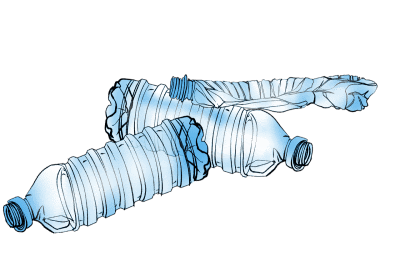Overmarketing has been a common tactic used by companies to create a demand for their products, often leading consumers to purchase items they don’t necessarily need or benefit from. In this article, we will focus on three products that have been overmarketed for decades, exploring the impact of overmarketing on consumer behavior and the potential risks and benefits associated with these products. From sugary cereals to bottled water, we will examine the ways in which these products have been marketed to us, and the impact of these marketing campaigns on our daily lives.
Bottled Water
Bottled water has been marketed as a premium product for several decades, with brands claiming that their water is of a higher quality than tap water. Bottled water was first marketed in the 1970s and has grown to become a multi-billion dollar industry. The growth in demand for bottled water has been fueled by concerns over the safety and quality of tap water, as well as changes in lifestyle and increased health consciousness.
Despite its popularity, bottled water has a significant negative impact on the environment. The production and transportation of bottled water consume vast amounts of energy and contribute to greenhouse gas emissions. Additionally, the disposal of plastic bottles has become a major environmental problem, with most plastic bottles ending up in landfills or in the ocean, where they take hundreds of years to decompose.
The overmarketing of bottled water can be attributed to the success of marketing campaigns that have promoted the convenience, safety, and health benefits of bottled water. The industry has also been successful in creating a culture where bottled water is seen as a status symbol and a fashion accessory. However, the effectiveness of these marketing campaigns is questionable, as studies have shown that the quality of bottled water is not necessarily superior to tap water, and that many bottled water brands are simply selling tap water in a bottle.
Weight Loss Medications and Supplements
Weight loss medications and supplements have been in the market for decades and are widely used by people looking to lose weight. These medications are designed to help people lose weight by suppressing appetite, reducing the absorption of fat, and increasing metabolism. Many of these medications and supplements are available over the counter, while others require a prescription.
While weight loss medications and supplements can help individuals achieve their weight loss goals, they can also have negative side effects, including gastrointestinal issues, sleep disorders, and heart problems. However, well researched, tested and accredited pills, like these medications for weightloss can be beneficial for individuals who have struggled to lose weight through diet and exercise alone, and they can help individuals maintain a healthy weight.
Weight loss medications and supplements are frequently promoted by companies due to the growing demand for weight loss options in modern society. Organizations have profited from people’s longing for fast and simple weight loss solutions. They help them achieve their weight loss goals without any hassle. Although some marketing campaigns may be effective in persuading people to give these items a try, it is essential to approach weight loss medications and supplements with care and to research the goods extensively before using them.
Breakfast Cereals
Breakfast cereals have been a popular breakfast option for decades, with many brands marketing themselves as healthy choices. However, some of these cereals are high in sugar and lacking in nutritional value. The first breakfast cereal was created in the late 1800s and since then, the cereal industry has continued to grow and expand into a multibillion-dollar industry.
Many popular cereals are marketed towards children and often contain high levels of sugar. This can contribute to unhealthy eating habits and increase the risk of health issues such as obesity, diabetes, and tooth decay. In fact, some cereals marketed as “healthy” options can contain more sugar than a candy bar. The high sugar content is often masked by marketing campaigns that focus on the nutritional benefits of the cereal, such as added vitamins and fiber.
The marketing campaigns for breakfast cereals have been highly effective in creating a demand for these products, often by appealing to children and their parents. However, some studies have shown that excessive sugar consumption from breakfast cereals can have negative effects on health, such as an increased risk of chronic diseases. While some cereal companies have made efforts to reduce sugar content in their products, it is important for consumers to read nutrition labels and research the ingredients of their breakfast cereals to make informed choices about their health.
Key Takeaways
It is important to be aware of the products that have been overmarketed for decades and to critically evaluate the claims made by companies. Bottled water, breakfast cereals, and weight loss medications and supplements are often overmarketed. However, it is important to consider the negative impact of excessive packaging and the environmental damage that bottled water causes, the high sugar content in many popular breakfast cereals, and the potential risks and benefits of weight loss medications and supplements.
As consumers, it is important to be informed and to research products thoroughly before making a purchase. By being aware of the overmarketing tactics used by companies, individuals can make more informed decisions and avoid falling for unrealistic promises.
Ultimately, the responsibility for making healthy and informed choices lies with the consumer. By taking a critical approach to marketing claims, individuals can make choices that align with their values and health goals.
